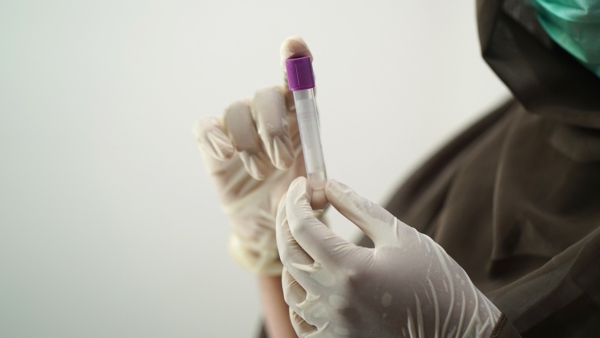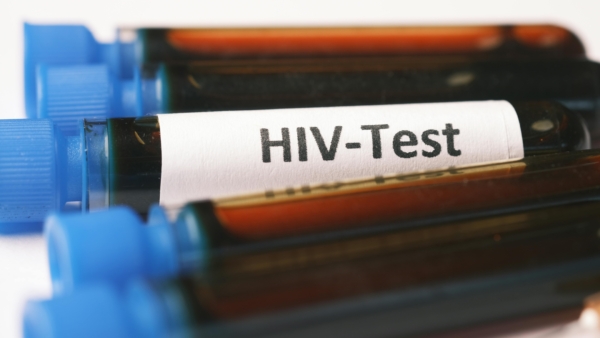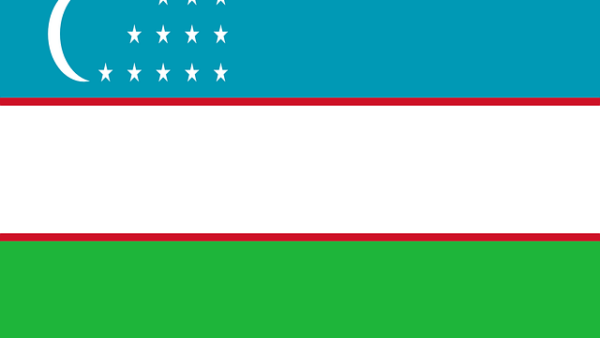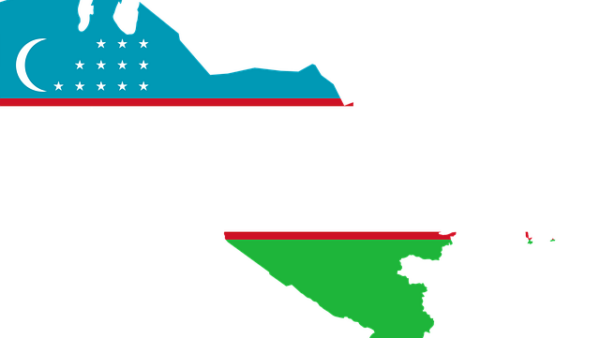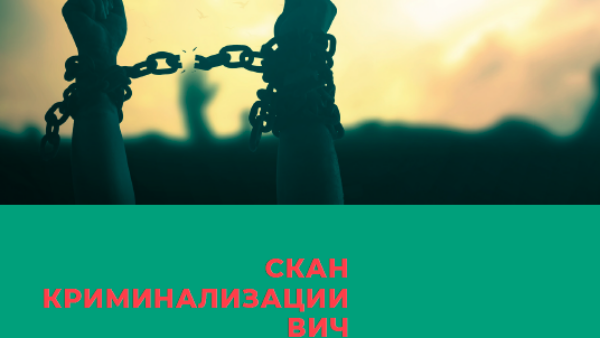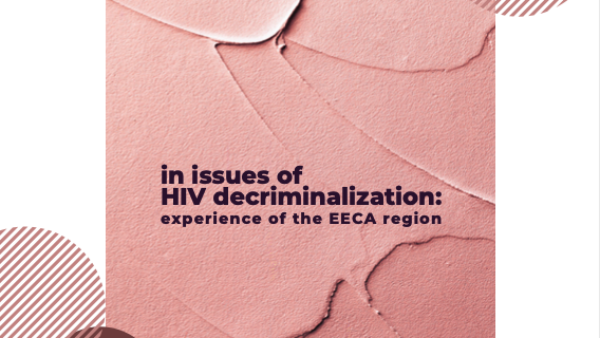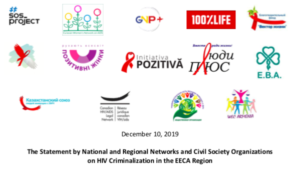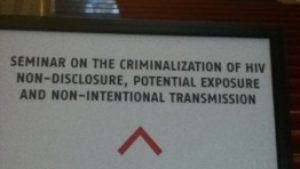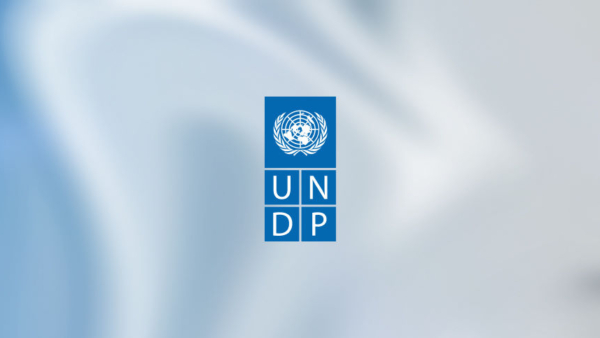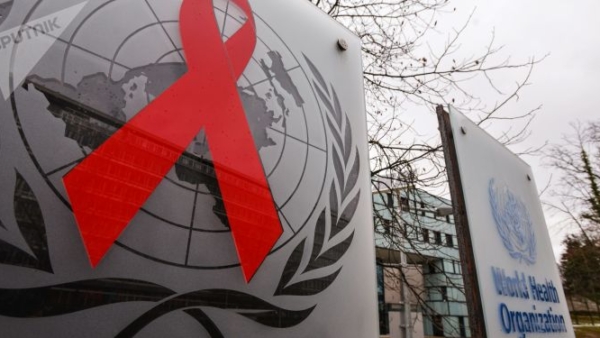Overview
Article 113 of Uzbekistan’s Criminal Code makes it an offence to ‘expose’ another to STIs and to HIV, providing considerably higher penalties for HIV ‘exposure’. A new draft Criminal Code was published in 2021, however this has not yet been enacted and the previous Code continues to apply.
Perceived HIV ‘exposure’ is liable to a sentence of five to eight years’ imprisonment, compared with a fine or up to one year imprisonment for ‘exposure’ to other STIs. Exposure leading to transmission of another STI increases the penalty to three to five years’ imprisonment, however no distinction is made between exposure and transmission for the HIV-specific element of this provision and does not impact the sentence imposed. This offence merely requires an awareness of status at the time of ‘exposure’, regardless of the actual risk of transmission associated with the act. The law does not provide any defences for the use of condoms or the presence of an undetectable viral load, and there is no defence for disclosure leading to informed consent.
In 2010, a case in which 147 children contracted HIV in Namangan involving alleged negligence by health care providers prompted the government to add an amendment to Article 113 that also makes health care practitioners criminally liable for ‘negligent HIV transmission’. The new provision specifies criminal liability ‘as a result of non-fulfilment or negligence of professional duties.’ This includes failing to keep instruments sterile, and failure to follow proper processes for medical procedures, including blood transfusion. This provision relates only to HIV and does not criminalise transmission of other STIs.
We have received reports of 12 cases of HIV criminalisation in Uzbekistan, however this is likely to be a considerable under-representation of enforcement, according to available resources. For instance, a 2022 shadow report to the CEDAW Committee by the Eurasian Women’s Network on AIDS (EWNA) and Alliance for Public Health quoted Ministry of Internal Affairs data which recorded 131 criminal offences under Article 113 in 2020, and 100 offences in nine months of 2021. A 2023 report by EWNA noted 76 offences for the first five months of 2022, a higher rate than in previous years. However, it is not clear how many of these recorded offences relate to HIV and how many relate to other STIs as the data in these reports are not disaggregated. In its 2018-2022 Criminalisation Scan in Eastern Europe and Central Asia, EWNA reported that the average number of criminal cases against people living with HIV is around 140. Furthermore, a media report in July 2023 suggested that police had initiated 20 HIV cases under Article 113 in the Tashkent Region of Uzbekistan alone (home to less than 10% of the Uzbek population). Together, these reports suggest that the true scale of HIV criminalisation in Uzbekistan is far greater than that represented in media reporting.
Recent case reports we have received include:
-
- In June 2020, a young man was charged with ‘knowingly putting a person at risk of HIV infection’, despite the fact that his partner had been aware of his HIV status before they had sex, HIV was not transmitted, and she did not want him prosecuted. The couple are now married with a child. The accused was given a suspended sentence, however, the man was then vilified in the press after media erroneously reported he had transmitted HIV.
- In October 2020, a young woman living with HIV was convicted under Article 113 after her husband contracted HIV. Although this provision carries a penalty of five to eight years’ imprisonment, a range of factors (including her confession, repentance, and testimony of her husband), resulted in the court applying Article 57 (the appointment of a lighter punishment) and sentencing her to two years’ house arrest.
- In December 2021, a woman was sentenced to six and a half years’ imprisonment under Article 113 for alleged ‘deliberate’ HIV transmission. Little is known about the case, but media reports claim that the women transmitted HIV through sexual intercourse to over 40 men.
- In a similar case in November 2022, a sex worker was sentenced to three years’ imprisonment for allegedly transmitting HIV to more than 20 men. It is not clear whether transmission did in fact take place or whether the media erroneously reported cases of ‘exposure’.
Media reports in 2023 demonstrate that the law against HIV ‘exposure’ continues to be actively enforced, with cases in March and April related to alleged sexual ‘exposure’.
Those arrested under the law may also be subjected to inhuman treatment and even torture in detention. The above 2022 shadow report documented an undated case of a trans woman living with HIV who, following arrest and a 15-day detention involving harassment and torture, was charged under Article 113 (along with Article 120 which criminalises ‘homosexuality’). No transmission was proven, nevertheless, she was sentenced to five years and one month’s house arrest.
A 2023 report by ECOM on state-sponsored homophobia in Uzbekistan notes that the laws criminalising same-sex sexual activity and HIV ‘exposure’/transmission reinforce each other and enable violating practices by law enforcement. For instance, civil society notes how prosecutions for same-sex activity have been initiated with the sole purpose of enabling information between the Ministries of Health and Justice, to allow the latter to ‘keep track’ of people living with HIV. The report also notes that the existence of Article 113 enables those suspected of engaging in same-sex activity to be subjected to forced anal examinations, a recognised form of torture.
In another grouping of cases (not included in the above tally), an investigation related to sex work uncovered the HIV+ status of at least two of five people detained, some of whom were transgender. It appears charges were laid related to a perceived risk of HIV ‘exposure’.
Another aspect of criminalisation in Uzbekistan is that the Ministry of Health maintains a list of professions prohibited for people living with HIV, and people who continue to work in these professions while being aware of their HIV status can be subject to criminal sanction under Article 113, regardless of transmission risk.
For instance, the 2022 shadow report noted above documents the 2020 case of a hairdresser living with HIV who was convicted under Article 113 as her profession is one prohibited for people living with HIV. The woman had an undetectable viral load and took measures to avoid cuts, however the court found her guilty and sentenced her to two years’ probation. Similarly, a case reported in April 2022 involved a dentist who continued to work after receiving a positive HIV diagnosis. A criminal case was opened under Article 113 on the basis that dentistry is a prohibited profession for people living with HIV. There is no suggestion of HIV transmission in the report. In 2024, the list of prohibited professions was updated and reduced, including dentists providing they are not involved in surgical interventions.
In its 2022 concluding observations on Uzbekistan, the CEDAW Committee called on the government to decriminalise perceived ‘exposure’ to and transmission of HIV through repeal of Article 113. A new draft Criminal Code was published for public consultation in February 2021, however this does not appear to have been adopted to date.
Laws also exist to regulate the treatment of people living with, or suspected of living with, HIV. Article 58 of the Code on Administrative Offences makes it an offence for people living with HIV to avoid examination, which after warning is subject to a fine. Additionally, in September 2022 it was reported that a new law requiring medical examination of those suspected of living with HIV, as well as compulsory HIV testing of known sex workers, men who have sex with men, and drug users, was being developed by the Interior Ministry, with possible adoption as early as January 2023. The report suggests that this would require testing of anyone suspected of being in these groups, and would not require a crime to be committed.
Laws
Criminal Code of the Republic of Uzbekistan
Article 113. Spread of Sexually Transmitted Disease or HIV / AIDS
(Title of Article 113 as amended by the Law of the Republic of Uzbekistan dated May 24, 2010 No. ЗРУ-248 – СЗ РУ, 2010, No. 21, Article 161)
1. Knowingly putting another person in danger of contracting a sexually transmitted disease –
shall be punishable by a fine of up to twenty-five times the minimum wage, or by compulsory community service for up to two hundred and forty hours, or correctional labour, up to one year.
2. Infection of another person with a venereal disease by a person who knew that he had this disease, –
shall be punishable by compulsory community service from three hundred sixty to four hundred eighty hours or by restriction of liberty from three to five years or by imprisonment from three to five years.
The actions provided for by the first or second parts of this article, committed in relation to:
a) two or more persons;
b) a minor, –
shall be punishable by compulsory community service from three hundred sixty to four hundred eighty hours or by restriction of liberty from three to five years or by imprisonment from three to five years.
3. Knowingly endangering another person or infecting them with HIV/AIDS – is punished by imprisonment from five to eight years.
4. Infection of another person with HIV/AIDS as a result of non-fulfillment or improper fulfillment by a person of his professional duties –
shall be punishable by a fine from one hundred to two hundred minimum wages or by compulsory community service from three hundred sixty to four hundred eighty hours or by corrective labour up to two years or by restriction of liberty from two to five years or by imprisonment up to five years.
Further resources
Alternative report on the implementation of the CEDAW concerning women living with HIV by the Republic of Uzbekistan for the 81st session of the UN Committee on the Elimination of Discrimination against Women.
This alternative report identifies the following issues: the harms of institutionalized criminalization of women living with HIV (criminalization of HIV exposure, non-disclosure and transmission); delaying the process of state registration of an association of women living with HIV; access to healthcare; violence issues; and the impact of restrictive measures due to COVID-19.
Submitted by the Eurasian Women's Network on AIDS and Alliance for Public Health - Geneva, Switzerland, 07 – 25 February 2022
The report is available in English and in Russian.
An analysis of the legal environment in Georgia, The Republic of Belarus, The Kyrgyz Republic, and The Republic of Uzbekistan in the context of the criminalisation of people living with HIV.
This analysis, published in 2022 by the Eurasian Women's Network on AIDS, examines the current state of the law in Uzbekistan and three other countries in Eastern Europe and Central Asia, documenting the scope of the law and reported cases. It includes a list of recommendations on how the law should be improved.
This report is available in Russian.
Authors: Eurasian Women’s Network on AIDS (EWNA)
Regional HIV criminalisation report that summarises the state of play regarding HIV criminalisation laws and known prosecutions in the EECA region.
Authors: Eurasian Women’s Network on AIDS (EWNA)
Regional HIV criminalisation report that summarises the law and prosecution data in each country in the EECA region.
In October 2020, Uzbekistan was elected to the UN Human Rights Council for the period from 2021 to 2023. According to the resolution establishing this Council, a member country must «uphold the highest standards in the promotion and protection of human rights1». In 2022, ECOM registered 80 cases of violations of the rights of LGBT people. This report from ECOM illustrates multiple unresolved problems in Uzbek society that are largely supported by the inaction of the authorities.
HIV Justice Network's Positive Destinations
Visit the Uzbekistan page on Positive Destinations for information on regulations that restrict entry, stay, and residency based on HIV-positive status, as well as access to HIV treatment for non-nationals.
